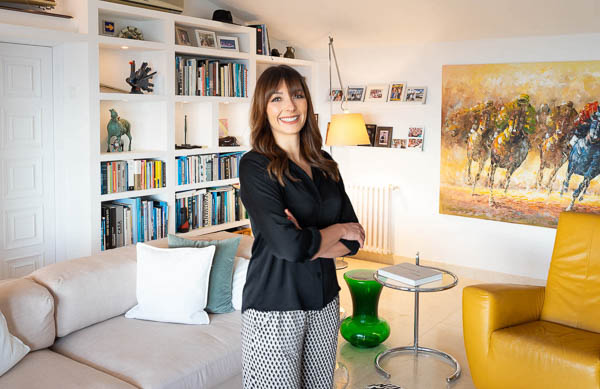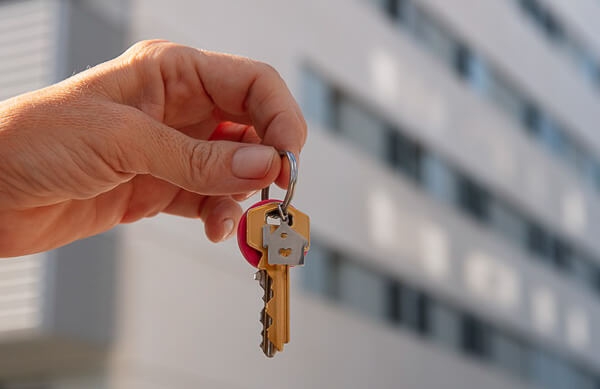
Is It Better to Rent or Buy a Home in 2025?
The eternal dilemma of whether it’s better to rent or buy a home continues to generate debates, especially in 2025, when real estate prices and changes in economic conditions seem relentless. This crucial decision doesn’t have a one-size-fits-all answer, as it heavily depends on each individual’s personal, financial, and professional situation. Below, we’ll explore both scenarios to help you make the best decision based on your context.
Renting or Buying a Home – What’s Best in 2025?
Deciding whether it’s better to buy or rent a home is not an easy task. While purchasing a property may seem like the more logical option due to the potential to own a valuable asset, the reality is that the path to ownership is filled with requirements and financial commitments.
Currently, most banks require a significant upfront deposit, typically around 30% of the property’s value (20% for the down payment and 10% for taxes and additional costs).
Gianna Hoffmann, director of Hoffmann Real Estate, shares her perspective on the topic:

"I recommend to my clients that they buy when they have enough savings to cover the mortgage deposit. In many Spanish cities, mortgage payments are often lower than rent. This is especially true in places like the Costa del Sol, where long-term rentals have been replaced by vacation rentals, driving up monthly rents. In Barcelona and surrounding areas, decent apartments up to €1,200 are snapped up quickly due to the housing shortage and extreme demand. We also recommend buying in these areas, as property values will continue to rise."
However, renting also offers key advantages, particularly for those who prioritize flexibility. If needs change or the property doesn’t meet expectations, moving becomes easier. In contrast, a mortgage contract represents a long-term financial commitment.
Key Factors to Decide Between Buying or Renting
When deciding whether it’s better to rent or buy a home, there are essential factors to consider. Some of the main ones include:
Your Savings and Financial Capacity
Buying a home requires a substantial initial investment. As mentioned, it’s typical to need at least 30% of the property’s value to cover both the down payment and associated costs. For example, for a home valued at €300,000, you’d need at least €90,000 saved.
Additionally, the Bank of Spain recommends not dedicating more than 35–40% of your monthly income to debt repayments, including your mortgage. If your finances don’t allow this, renting might be a more viable alternative.
Personal Plans and Job Stability
If you have a job that involves frequent relocations or you’re unsure of where you’d like to settle long-term, renting may be the best option. On the other hand, buying a home is ideal for those seeking long-term stability and who have a steady job that can guarantee mortgage payments for years to come.
It’s also important to consider the possibility of selling if necessary. Although in many cases it’s possible to recover the investment, this depends on market conditions at the time of sale.
The Real Estate Market
Understanding the market situation is crucial to making an informed decision about whether it’s better to rent or buy. For example, if property prices are dropping, it might be wise to wait to buy while renting. However, this approach carries the risk of the desired property being purchased by someone else.
In the rental market, supply is limited and competitive. Well-maintained, reasonably priced properties are typically available for only a few days. This contrasts with the buying market, which usually allows more time to reflect on such an important decision.
Practical Examples: Real Decisions
Let’s look at Laura’s case, a professional working from home with a dog. Laura was searching for a rental home with a garden. After months of searching, she found that homes meeting her criteria started at €1,200 per month. In the end, she decided to buy a property. Her mortgage costs her €690 per month, almost half the rent she had considered.
On the other hand, Alejandro, a young programmer, chose to rent a small apartment in the city center while saving to buy his first home. For him, mobility and the ability to change neighborhoods quickly were key factors.
When Is It Better to Buy a Home?
Buying a home can be one of the most significant financial decisions of your life. Here are some reasons to opt for this option:
- Building equity: Mortgage payments become a tangible investment, unlike rent, where the money doesn’t generate a return.
- Appreciation in value: Over time, properties tend to increase in value, which can lead to profits if you decide to sell.
- Long-term security: Once you’ve paid off the mortgage, you’ll own a home with no significant monthly costs, which can ease the financial burden during retirement.
- Freedom and personalization: As an owner, you have full control over your property, from renovations to decoration.
When Is It Better to Rent a Home?
Renting, on the other hand, is a more practical option for many people, especially in certain circumstances:
- Geographic flexibility: Ideal if you have a job that requires frequent moves or if you’re unsure of where you want to settle long-term.
- Lower initial financial commitment: You don’t need significant savings to get started, although some landlords may ask for guarantees or deposits.
- Less maintenance responsibility: In most cases, the landlord is responsible for repairs and maintenance of the property.
Rent-to-Own: The Best of Both Worlds
For those torn between renting and buying, rent-to-own is a middle-ground solution. This model allows you to live in a home as a tenant but with the option to buy it in the future. Part of the rent paid is deducted from the final price, and you have the flexibility to decide whether to buy based on your circumstances.
Is It Cheaper to Rent or Pay a Mortgage?
Although mortgages are typically cheaper than rents, there are other factors to consider, such as interest and additional costs associated with buying. For example, a 30-year mortgage may have lower monthly payments due to the extended term, but the accumulated interest over time can be significant.
On the other hand, rents, while often higher, don’t carry these additional costs.
Renting or Buying as a Young Person in 2025
For young people seeking independence, the decision to rent or buy depends on their long-term goals and current resources.
Advantages of Buying Young
- Build equity early.
- Take advantage of aids or grants for home purchases.
- Stability in terms of housing.
Advantages of Renting Young
- Greater freedom to explore different locations.
- Less initial financial pressure.
- Time to better understand the real estate market.
Conclusion: Analyze Your Specific Case
In 2025, the decision to buy or rent a home depends on multiple factors: your financial situation, lifestyle, job stability, and market conditions. Make a realistic analysis of your needs and priorities, and use financial tools to compare the options. Whether you choose to rent for flexibility or buy as an investment, the most important thing is that the decision aligns with your circumstances and personal goals.
Ultimately, it depends on your situation and needs to know what is best for you - renting or buying






